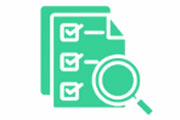Emotional Intelligence through heightened Self Awareness
Why Emotional Intelligence?
Technical skills are always sought after in any profession. These skills can make you good at your work and well appreciated. However, it is the unique ability to work with others to accomplish important goals and objectives, is what makes all the difference. The one that will take you far in your career. This is where Emotional Intelligence (EI) comes into play. EI is a set of skills that helps you recognize, understand, and manage your emotions as well as recognize, understand and influence the emotions of others. These skills are critical in building and maintaining relationships, influencing others and will help you throughout your career, no matter where you sit in the organizational hierarchy.
It is important to have good EI for the following reasons:
- People with high EI are more aware of self & others, than those with lower EI.
- EI helps control your emotions and contribute better.
- EI helps you relate to others in more effective ways.
- EI augments active listening and moulds you to take criticism positively. It therefore facilitates learning from mistakes, and helps you cut down significantly on ego issues at work.
- Generally EI reduces stress, enhances communication, boosts empathy, enriches innovation, improves decision making, job satisfaction and resolves conflicts.
Emotional Intelligence and Self Awareness
Emotional intelligence is seen as a set of skills and behaviours and hence some people will be naturally more adept at it, however EI can be learned, developed, and enhanced. The key components of EI are Self-Awareness and Management, Social Awareness, and Relationship Management. Out of these self-awareness is the most fundamental element.
Self-Awareness
Our emotions impact our mood, behaviours, performance, and interactions with other people. Self-awareness is the ability to identify and understand your own emotions and it is the cornerstone of emotional intelligence. If you’re aware of your own emotions and the behaviours they trigger, you can begin to manage these emotions and behaviours better.
These skills will help you strengthen the following abilities:
- Identifying your emotions accurately: identify, label and differentiate among a range of emotional experiences and reactions.
- Understanding the basis for your reactions: recognize the potential causes and functions of your emotional experiences and reactions.
- Understanding how your reactions impact others: realize how what you say and do affects other people’s emotional experiences and responses.
- Understanding how other people’s emotions impact you: be aware of how you’re affected by other people’s emotional reactions and responses.
Barriers to Self-Awareness
Without an objective sense of who you are and what drives you, it’s nearly impossible to be emotionally intelligent. Unfortunately, research suggests that most of us aren’t very self-aware. What’s worse, research also shows that managers and CEOs may be the least self-aware of all. This is not despite their authority, but quite possibly because of it. The more power someone obtains, the more likely they are to be overconfident about how well they know themselves. After all, those at the top of the organisational pyramid have fewer people giving them feedback. Managers are insulated from criticism, and as a result, self-awareness sinks.
Enhancing Self-Awareness and EI
- Self-Reflection and Introspection: journaling and the practicing the 5 “why” method.
- Mindfulness – regular practice of meditation and other stress relieving techniques.
- Undergoing a 360 degree feedback for self
- Undergoing coaching
- Taking a generic psychometric test
- Some books to read:
- “Emotional Intelligence” by Daniel Goleman
- “Primal Leadership” by Daniel Goleman, Richard Boyatzis, and Annie McKee
- “Permission to feel” by Marc Brackett
- “Search Inside yourself” by Chade-Meng Tan
To know more about how we can support your self-awareness journey write to us at syngrity@syngrity.com or sumal@syngrity.com
 Sumal is an accomplished & high performing business leader with over 25 years of experience across multiple industries and verticals (Conglomerate + Manufacturing Plant + Consulting + Start-ups + Service Industry). Sumal is recognized for being a valued business driver and change agent in diverse environments, backed by a proven track record in managing a variety of Management & HR essentials, building Organisational Capability to drive strategy, establishing Policies and Practices, and Leading Organisational Development and Change management initiatives linking HR to business results. He has held leadership positions at the K K Birla Group and TVS
Sumal is an accomplished & high performing business leader with over 25 years of experience across multiple industries and verticals (Conglomerate + Manufacturing Plant + Consulting + Start-ups + Service Industry). Sumal is recognized for being a valued business driver and change agent in diverse environments, backed by a proven track record in managing a variety of Management & HR essentials, building Organisational Capability to drive strategy, establishing Policies and Practices, and Leading Organisational Development and Change management initiatives linking HR to business results. He has held leadership positions at the K K Birla Group and TVS




 MALATI VASUDEVA
MALATI VASUDEVA VIKRAM BADHWAR
VIKRAM BADHWAR PRIYANKA KUMAR
PRIYANKA KUMAR SUMAL VARGHESE
SUMAL VARGHESE














